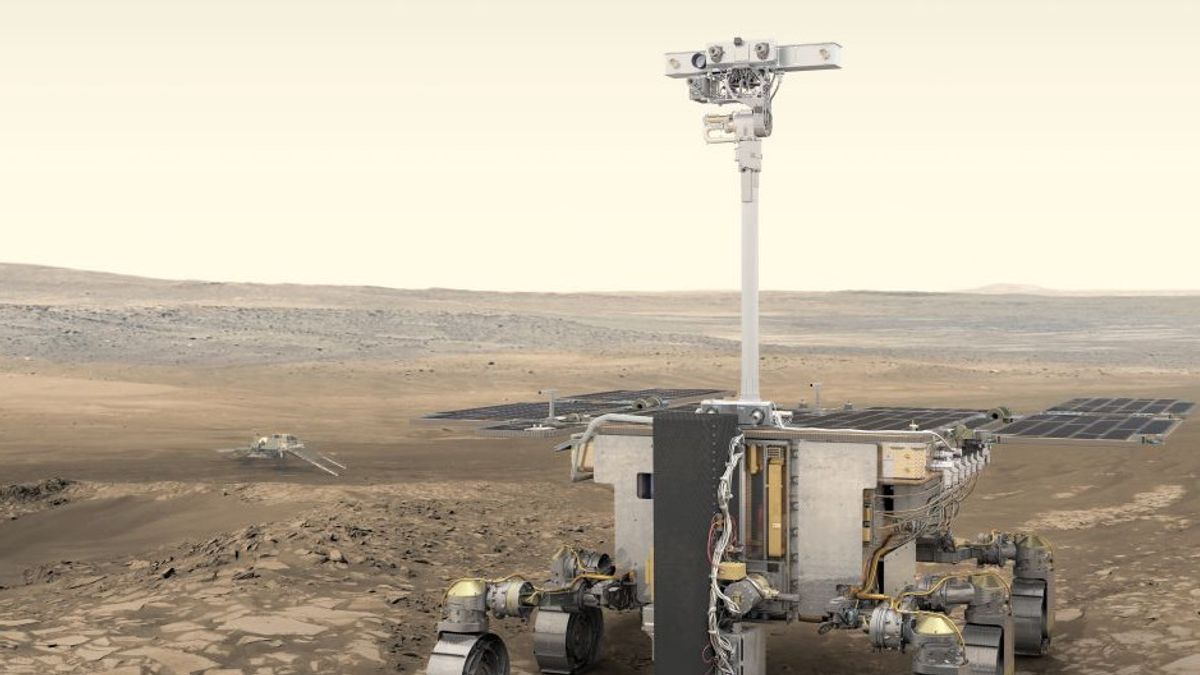JAKARTA - The European Space Agency (ESA) has been forced to postpone its exploration mission for Mars, due to the coronavirus or COVID-19 outbreak. The mission to launch the unmanned robot to Mars was postponed until 2022.
This was decided, ESA related to technical problems and concerns of the global coronavirus epidemic. So the Exomars rover mission had to be postponed.
"Because people from various industrial places in Russia, in Italy and France are unable to move. I don't want to say that the coronavirus is the only reason. But it has an impact on the mission," said ESA Director General Jan Wörner at ESA headquarters in Paris. , as quoted by the BBC.
The plan is that the ExoMars rover exploration mission to Mars, called Rosalind Franklin, is scheduled to be launched to the Red Planet in July this year. The ESA team has also conducted a series of additional tests on parachute designs to slow down the rover as it enters the Martian atmosphere.
"We appreciate @esa and @roscosmos for making the difficult decision to delay @ESA_ExoMars until 2022. Launching and landing safely on a spacecraft on Mars requires a lot of technology and systems to function perfectly," said NASA's Head of Science Mission Directorate, Thomas. Zurbuchen on his official Twitter account.
A bit of good news from #Mars: our new approach of using the robotic arm to push the mole appears to be working! The teams @ NASAJPL / @ DLR_en are excited to see the images and plan to continue this approach over the next few weeks. 💪 #SaveTheMole FAQ: https://t.co/wnhp7c1gPT pic.twitter.com/5wYyn7IwVo
- NASA InSight (@NASAInSight) March 13, 2020
Wörner also said that even if this mission was continued there would be some technical problems that had not been resolved. So that it still takes longer to repair adequate equipment and systems.
"Due to problem solving of this anomaly at the system level, the final version of the flight software has been delayed and there was not enough time to fully test it before the 2020 launch and get the confidence we needed," said Wörner.
It is known that this exploration is the second phase of a joint mission with ESA-Roscosmos ExoMars. This program started in 2016 with the launch of the Trace Gas Orbiter, which is still circling around Mars.
The plan is for the ExoMars rover mission to be rescheduled for launch in 2022, with a time span between August and October. The rover will land on Mars in 2023. After the rover passes its final tests and is ready, it will be subject to further inspection for equipment checks.
The Rosalind Franklin rover's landing location will not change even though it has a new launch date. The location is on a dry Mars lake that is more than 3 billion years old.
There Rover will look for signs of life, past and present, as well as gathering data that can help solve the mysteries of the Red Planet, such as what happened to methane in the Martian atmosphere.
"We have waited for centuries to find out whether Mars is something like the starting place of life in our solar system. To find answers to our questions, we need to have more patience for several years," concluded Wörner.
It is known that the robot vehicle was officially approved by European countries in 2005, with the first launch being carried out in 2011. Then, as ambitions grew to improve the technology, the launch was postponed until 2013, but new problems emerged until the mission was finally carried out in 2018.
For most of its history, the explorer project, under the name ExoMars, had to find a budget sufficient to maintain a promised schedule. In 2009, ESA decided to join the United States (US) in trying to make the mission a reality, only to see NASA leave three years later when its priorities changed. In the end, however, ExoMars received an offer from Russia to fill the partnership position vacated by the US.
The English, Chinese, Japanese, Arabic, and French versions are automatically generated by the AI. So there may still be inaccuracies in translating, please always see Indonesian as our main language. (system supported by DigitalSiber.id)













